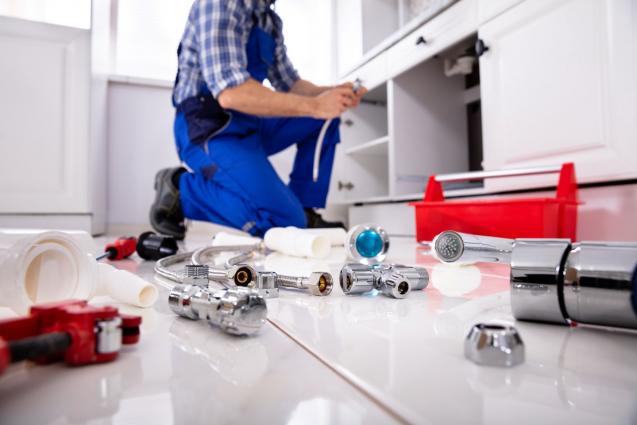
Essential Tips for Upgrading Your Home’s Hot Water System
Assess Your Current Hot Water System
The first step in upgrading your hot water system is to assess your current setup. There are several types of hot water systems, including tank, tankless, solar, and heat pump systems. Each type has its benefits and limitations.
- Tank Systems: These are traditional systems that store heated water in a tank for immediate use. While they are often less expensive upfront, they can be less energy-efficient due to heat loss from the tank.
- Tankless Systems: Also known as on-demand systems, these heat water directly as it is used. They tend to be more energy-efficient but can be pricier to install.
- Solar Systems: These utilise solar panels to heat water, offering an environmentally friendly option. However, their effectiveness can vary based on your location's climate.
- Heat Pump Systems: These systems use electricity to move heat from one place to another, making them highly efficient. They might require a higher initial investment.
Evaluating the age and efficiency of your current system is crucial. Systems older than 10-15 years are more likely to need replacement due to wear and tear. Common issues with older systems include leaky tanks, inconsistent water temperatures, and frequent breakdowns. If repair costs are escalating, it might be more economical to invest in a new system.
Determine Your Hot Water Needs
It's essential to assess your household's hot water needs before deciding on a new system. This helps in choosing a system that can handle your family's requirements without being overly expensive or inadequate.
Consider the size of your household and your hot water usage patterns. Larger households generally require systems with higher capacities. Evaluate peak usage times; for instance, if everyone in the family showers in the morning, the system must cater to that demand.
Energy consumption and cost considerations are also crucial. Modern systems often come with improved energy ratings, which can significantly reduce your energy bills. Ensuring your new system is energy-efficient can lead to long-term savings. Additionally, think about your future needs. If your family is expected to grow, opt for a system that can accommodate an increased demand.
Explore Your Options
When you're aware of your current system's limitations and your future needs, it's time to explore available options. The two main categories are tank and tankless systems, each with distinct advantages.
Choosing which hot water system is best for your home can depend on several factors, such as energy efficiency, installation costs, and your household's specific demands. Tank systems are usually less expensive to purchase and install. However, they often consume more energy because of the need to keep the water hot continuously, which increases utility bills. On the other hand, tankless systems heat water on-demand using less energy, but their installation costs can be higher.
When comparing these systems, energy efficiency ratings play a vital role. The higher the rating, the more efficient the system, leading to reduced energy consumption. It's also worth considering the environmental impacts and sustainability factors. Systems with high energy efficiency look attractive from an environmental perspective, contributing to lower carbon footprints.
Consider other features and benefits, such as the system's lifespan, maintenance requirements, and any rebates or incentives available for energy-efficient models. Make a list of your priorities to find a system that checks all the boxes.
Hire a Qualified Professional
Once you decide on the type of system, hiring a qualified professional is crucial for proper installation. A licensed and experienced plumber or technician ensures the system is set up correctly and safely.
Begin by researching local professionals. Look for licensed and experienced contractors with good reviews. When interviewing potential contractors, ask about their experience with the specific type of system you plan to install. Ensure they are familiar with local regulations and codes.
It's advisable to get multiple quotes to compare pricing and services. Don’t shy away from asking specifics about warranties and post-installation support. Reliable contractors will offer comprehensive warranties and ongoing maintenance services, which are crucial for the system's longevity.
Maintenance Tips for Longevity
The longevity and efficiency of your hot water system largely depend on regular maintenance. Simple maintenance routines can prevent significant problems and extend the lifespan of your system.
Regularly check for leaks and listen for unusual noises that may indicate a problem. DIY checks can include inspecting the pressure relief valve and draining the tank to remove sediment buildup. Always follow the manufacturer's guidelines for maintenance procedures.
While DIY maintenance can cover minor issues, knowing when to call a professional is vital. Annual inspections by a licensed technician can identify potential problems before they escalate. Professional maintenance services may include checking the system’s electrical components, anode rods, and safety mechanisms.
Conclusion
Upgrading your home’s hot water system involves several critical steps, from assessing your current system to selecting a suitable new one and ensuring professional installation. The benefits of a modern, energy-efficient hot water system go beyond immediate comfort – they offer long-term savings and contribute to environmental sustainability. Always seek professional advice to make an informed decision and enjoy enhanced home comfort and efficiency.



